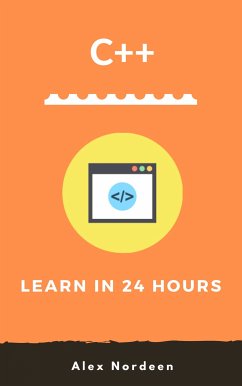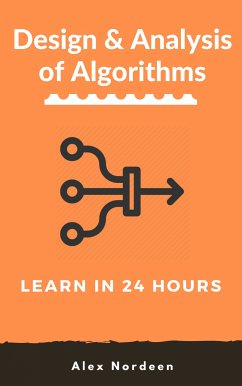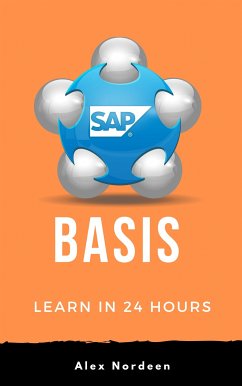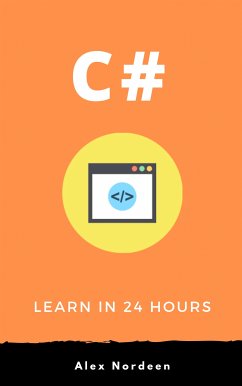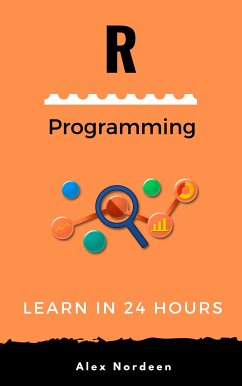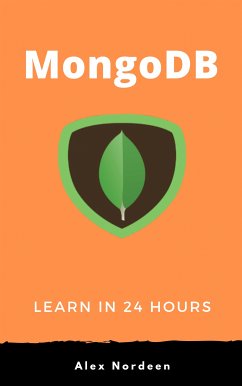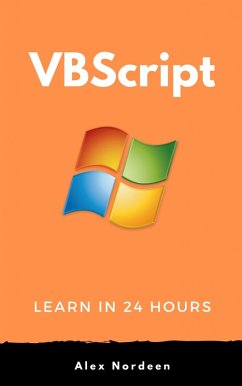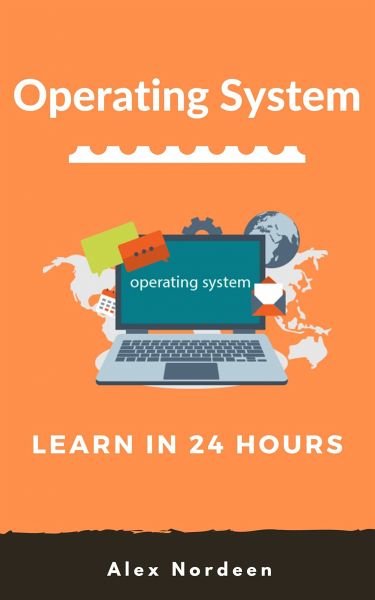
Learn Operating System in 24 Hours (eBook, ePUB)

PAYBACK Punkte
0 °P sammeln!
Table Of ContentChapter 1: What is Operating System? Explain Types of OS, Features and ExamplesWhat is an Operating System?History Of OSExamples of Operating System with Market ShareTypes of Operating System (OS)Functions of Operating SystemFeatures of Operating System (OS)Advantage of using Operating SystemDisadvantages of using Operating SystemWhat is Kernel in Operating System?Features of KennelDifference between Firmware and Operating SystemDifference between 32-Bit vs. 64 Bit Operating SystemChapter 2: What is Semaphore? Binary, Counting Types with ExampleWhat is Semaphore?Characteristic ...
Table Of Content
Chapter 1: What is Operating System? Explain Types of OS, Features and Examples
What is an Operating System?
History Of OS
Examples of Operating System with Market Share
Types of Operating System (OS)
Functions of Operating System
Features of Operating System (OS)
Advantage of using Operating System
Disadvantages of using Operating System
What is Kernel in Operating System?
Features of Kennel
Difference between Firmware and Operating System
Difference between 32-Bit vs. 64 Bit Operating System
Chapter 2: What is Semaphore? Binary, Counting Types with Example
What is Semaphore?
Characteristic of Semaphore
Types of Semaphores
Example of Semaphore
Wait and Signal Operations in Semaphores
Counting Semaphore vs. Binary Semaphore
Difference between Semaphore vs. Mutex
Advantages of Semaphores
Disadvantage of semaphores
Chapter 3: Components of Operating Systems
What are OS Components?
File Management
Process Management
I/O Device Management
Network Management
Main Memory management
Secondary-Storage Management
Security Management
Other Important Activities
Chapter 4: Microkernel in Operating System: Architecture, Advantages
What is Kernel?
What is Microkernel?
What is a Monolithic Kernel?
Microkernel Architecture
Components of Microkernel
Difference Between Microkernel and Monolithic Kernel
Advantages of Microkernel
Disadvantage of Microkernel
Chapter 5: System Call in OS (Operating System): What is, Types and Examples
What is System Call in Operating System?
Example of System Call
How System Call Works?
Why do you need System Calls in OS?
Types of System calls
Rules for passing Parameters for System Call
Important System Calls Used in OS
Chapter 6: File Systems in Operating System: Structure, Attributes, Type
Chapter 7: Real-time operating system (RTOS): Components, Types, Examples
Chapter 8: Remote Procedure Call (RPC) Protocol in Distributed System
Chapter 9: CPU Scheduling Algorithms in Operating Systems
Chapter 10: Process Management in Operating System: PCB in OS
Chapter 11: Introduction to DEADLOCK in Operating System
Chapter 12: FCFS Scheduling Algorithm: What is, Example Program
Chapter 13: Paging in Operating System(OS)
Chapter 14: Livelock: What is, Example, Difference with Deadlock
Chapter 15: Inter Process Communication (IPC)
Chapter 16: Round Robin Scheduling Algorithm with Example
Chapter 17: Process Synchronization: Critical Section Problem in OS
Chapter 18: Process Scheduling: Long, Medium, Short Term Scheduler
Chapter 19: Priority Scheduling Algorithm: Preemptive, Non-Preemptive EXAMPLE
Chapter 20: Memory Management in OS: Contiguous, Swapping, Fragmentation
Chapter 21: Shortest Job First (SJF): Preemptive, Non-Preemptive Example
Chapter 22: Virtual Memory in OS: What is, Demand Paging, Advantages
Chapter 23: Banker's Algorithm in Operating System [Example]
Chapter 1: What is Operating System? Explain Types of OS, Features and Examples
What is an Operating System?
History Of OS
Examples of Operating System with Market Share
Types of Operating System (OS)
Functions of Operating System
Features of Operating System (OS)
Advantage of using Operating System
Disadvantages of using Operating System
What is Kernel in Operating System?
Features of Kennel
Difference between Firmware and Operating System
Difference between 32-Bit vs. 64 Bit Operating System
Chapter 2: What is Semaphore? Binary, Counting Types with Example
What is Semaphore?
Characteristic of Semaphore
Types of Semaphores
Example of Semaphore
Wait and Signal Operations in Semaphores
Counting Semaphore vs. Binary Semaphore
Difference between Semaphore vs. Mutex
Advantages of Semaphores
Disadvantage of semaphores
Chapter 3: Components of Operating Systems
What are OS Components?
File Management
Process Management
I/O Device Management
Network Management
Main Memory management
Secondary-Storage Management
Security Management
Other Important Activities
Chapter 4: Microkernel in Operating System: Architecture, Advantages
What is Kernel?
What is Microkernel?
What is a Monolithic Kernel?
Microkernel Architecture
Components of Microkernel
Difference Between Microkernel and Monolithic Kernel
Advantages of Microkernel
Disadvantage of Microkernel
Chapter 5: System Call in OS (Operating System): What is, Types and Examples
What is System Call in Operating System?
Example of System Call
How System Call Works?
Why do you need System Calls in OS?
Types of System calls
Rules for passing Parameters for System Call
Important System Calls Used in OS
Chapter 6: File Systems in Operating System: Structure, Attributes, Type
Chapter 7: Real-time operating system (RTOS): Components, Types, Examples
Chapter 8: Remote Procedure Call (RPC) Protocol in Distributed System
Chapter 9: CPU Scheduling Algorithms in Operating Systems
Chapter 10: Process Management in Operating System: PCB in OS
Chapter 11: Introduction to DEADLOCK in Operating System
Chapter 12: FCFS Scheduling Algorithm: What is, Example Program
Chapter 13: Paging in Operating System(OS)
Chapter 14: Livelock: What is, Example, Difference with Deadlock
Chapter 15: Inter Process Communication (IPC)
Chapter 16: Round Robin Scheduling Algorithm with Example
Chapter 17: Process Synchronization: Critical Section Problem in OS
Chapter 18: Process Scheduling: Long, Medium, Short Term Scheduler
Chapter 19: Priority Scheduling Algorithm: Preemptive, Non-Preemptive EXAMPLE
Chapter 20: Memory Management in OS: Contiguous, Swapping, Fragmentation
Chapter 21: Shortest Job First (SJF): Preemptive, Non-Preemptive Example
Chapter 22: Virtual Memory in OS: What is, Demand Paging, Advantages
Chapter 23: Banker's Algorithm in Operating System [Example]
Dieser Download kann aus rechtlichen Gründen nur mit Rechnungsadresse in A, B, BG, CY, CZ, D, DK, EW, E, FIN, F, GR, H, IRL, I, LT, L, LR, M, NL, PL, P, R, S, SLO, SK ausgeliefert werden.




